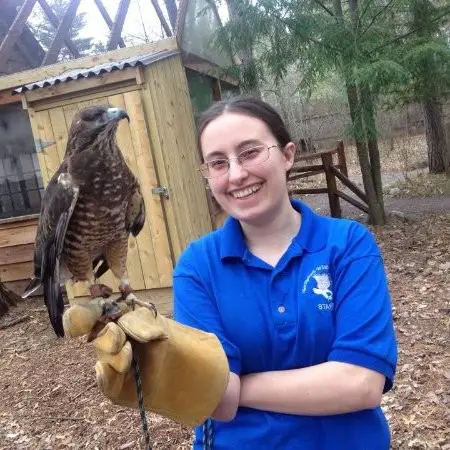Do budgies eat worms?
Yes, budgies can eat worms, but it is not a common part of their diet. In the wild, budgies primarily consume seeds, fruits, and vegetation. While worms can provide protein, they should only be given occasionally and in moderation. Overfeeding worms can lead to health issues, as budgies are not naturally inclined to consume them regularly. Ensuring that any worms offered are free from pesticides and sourced from a reputable supplier is crucial. For a balanced diet, focusing on high-quality birdseed mixes, fresh fruits, and vegetables is best.
Can Budgies Eat Cilantro?
Nutritional and Health Benefits of Eating Worms for Budgies
Budgies, also known as parakeets, are small parrots that thrive on a varied diet. Incorporating worms into their diet can provide several nutritional and health benefits. Understanding these benefits helps ensure these vibrant birds’ overall well-being and longevity.
Nutritional Value of Worms
Worms, particularly mealworms and earthworms, are rich in essential nutrients that support budgies’ health. They are excellent protein sources crucial for muscle development, feather health, and overall growth. Worms contain vital amino acids that aid in various bodily functions, including tissue repair and enzyme production.
Protein and Amino Acids
The high protein content in worms helps maintain strong muscles and healthy feathers. Amino acids, the building blocks of protein, play a significant role in the repair and growth of tissues. For budgies, which undergo regular molting, a protein-rich diet ensures that new feathers grow strong and vibrant.
Can Budgies Eat Celery?
Fatty Acids
Worms also provide essential fatty acids, which are vital for maintaining healthy skin and feathers. These fatty acids help absorb fat-soluble vitamins, such as A, D, E, and K, contributing to overall health and vitality.
Vitamins and Minerals
In addition to proteins and fats, worms are rich in vitamins and minerals. They provide a good source of B vitamins, which support energy metabolism and neurological functions. Minerals like calcium and phosphorus found in worms are crucial for bone health and egg production in female budgies.
Health Benefits of Worm Consumption
Incorporating worms into a budgie’s diet not only boosts their nutritional intake but also offers several health benefits.
How Do Budgies Die?
Improved Digestion
Worms contain enzymes that can aid digestion. These enzymes help break down food more efficiently, allowing budgies to absorb more nutrients from their diet. This improved digestion can lead to better overall health and reduced risk of gastrointestinal issues.
Enhanced Immune System
The nutrients in worms contribute to a stronger immune system. Protein and essential fatty acids support the production of antibodies and other immune cells, helping budgies fend off infections and diseases more effectively. A robust immune system is crucial for preventing common avian illnesses.
Increased Energy Levels
Worms are a high-energy food source, providing budgies with the necessary fuel for their active lifestyles. The combination of protein, fats, and vitamins ensures that budgies remain energetic and playful, which is essential for their mental and physical well-being.
Can Budgies Eat Carrots?
Better Reproductive Health
For breeding budgies, worms can be particularly beneficial. The high protein and mineral content support egg production and overall reproductive health. Female budgies laying eggs require additional nutrients, and worms can help meet these increased nutritional demands.
Things to Watch Out for When Feeding Worms to Budgies
Feeding worms to budgies can be a beneficial addition to their diet, providing essential nutrients and protein. However, several important factors must be considered to ensure the health and safety of your budgies.
Types of Worms
Different types of worms offer various nutritional benefits. Commonly fed worms include mealworms, waxworms, and earthworms. Mealworms are rich in protein, while waxworms are higher in fat. Choosing the right type of worm is crucial based on your budgie’s nutritional needs and overall diet. Feeding too many high-fat worms, such as waxworms, can lead to obesity and other health issues.
Source and Quality
The source of the worms is vital. Always purchase worms from reputable suppliers to avoid the risk of contamination. Worms from unreliable sources may carry parasites or bacteria that can harm your budgie. Additionally, wild-caught worms can be exposed to pesticides or other harmful chemicals, making them unsafe for consumption.
Preparation
Proper preparation of worms before feeding is essential. Ensure the worms are clean and free of any dirt or debris. Some experts recommend gut-loading worms (feeding them nutritious food before offering them to your budgie) to enhance their nutritional value. Always avoid feeding dead or decaying worms, which can cause digestive issues or infections.
Portion Sizes
Moderation is key when feeding worms to budgies. Excessive feeding can result in nutritional imbalances and obesity. Worms should be considered a treat or supplement rather than a primary food source. A few worms once or twice a week are sufficient for most budgies. Monitor your budgie’s weight and overall health to determine the appropriate portion size.
Health Monitoring
Closely observe your budgie after introducing worms to their diet. Look for any signs of digestive issues, such as diarrhea or vomiting, and consult a veterinarian if any health problems arise. Regular vet check-ups can help ensure your budgie remains healthy and can handle the addition of worms to their diet.
Potential Risks
Feeding worms to budgies does come with potential risks. Besides the danger of contamination, there’s also the risk of your budgie developing an allergy to certain types of worms. Introducing worms gradually and in small quantities can help identify any adverse reactions early on.
Symptoms of Worms in Budgies
Like other birds, Budgies can suffer from worm infestations that can significantly impact their health. Early recognition of symptoms is essential for timely treatment and successful recovery. Here are the primary signs to watch for:
Weight Loss
A noticeable and unexplained loss of weight can indicate a worm infestation. Despite eating normally, infected budgies may fail to maintain or gain weight due to the parasites consuming the nutrients.
Diarrhea
Persistent diarrhea, often with an unusual color or consistency, is a common symptom. Worms irritate the digestive tract, leading to gastrointestinal issues.
Lethargy
Infected budgies often lack energy or enthusiasm. They may sleep more than usual, show reduced activity levels, and seem generally less lively.
Poor Feather Condition
Worms can affect a budgie’s overall health, leading to dull, ruffled, or missing feathers. The bird may also appear unkempt as a result of nutrient deficiencies.
Changes in Droppings
An infestation may cause changes in the appearance and frequency of droppings. Look for abnormalities such as blood, mucus, or increased waste.
Increased Appetite
Despite the weight loss, some budgies may exhibit an increased appetite. This paradoxical behavior occurs because the worms absorb the nutrients, leaving the bird constantly hungry.
Visible Worms
In severe cases, worms might be found in the droppings or around the vent area. This clearly indicates a heavy infestation and requires immediate veterinary attention.
Respiratory Distress
Certain types of worms can migrate to the respiratory system, causing breathing difficulties. The symptoms include difficulty breathing, wheezing, and persistent coughing.
Behavioral Changes
Budgies with worms may exhibit unusual behaviors such as excessive preening, irritability, or restlessness. These changes often result from discomfort and irritation caused by the parasites.
Prevention and Treatment
Preventing worm infestations in budgies involves maintaining a clean living environment, regular veterinary check-ups, and possibly administering prophylactic treatments. A veterinarian will typically prescribe anthelmintic medications to eliminate the parasites if a worm infestation is suspected.
Regularly monitoring your budgie’s health and prompt action at the first sign of symptoms can help ensure a swift recovery and prevent further complications.
Can Baby Budgies Eat Worms?
Baby budgies can eat worms, but it should be done cautiously. Worms can be a good protein source, aiding their growth and development. However, ensuring the worms are safe, free from pesticides, and appropriate in size to prevent choking is crucial. Mealworms are a suitable option, but they should be given sparingly and as part of a balanced diet. Overfeeding worms can lead to nutritional imbalances, so it’s essential to maintain a varied diet, including seeds, fruits, and vegetables. Always consult with an avian veterinarian before introducing new foods to your baby budgie.
Do Budgies Eat Mealworms?
Budgies can eat mealworms as an occasional treat, providing them with a protein boost. While mealworms are rich in essential nutrients, they should not replace a balanced diet of seeds, fruits, and vegetables. Moderation is crucial to avoid potential health issues. Ensure mealworms are fresh and free from pesticides for safe consumption.
Can Budgies Eat Grub Worms?
Yes, budgies can eat grubworms, but they should be in moderation. Grubworms are a good source of protein and essential nutrients, promoting healthy growth and feather development. Before offering them to your bird, ensure the worms are free from pesticides and chemicals. Diversifying your budgie’s diet with safe, natural food sources is crucial for overall well-being.
Can a Goose Eat Army Worms?
Yes, budgies can eat grubworms but should be given in moderation. Grubworms are a good source of protein and essential nutrients, promoting healthy growth and feather development. Before offering them to your bird, ensure the worms are free from pesticides and chemicals. Diversifying your budgie’s diet with safe, natural food sources is crucial for overall well-being.
Do Canada Budgies Eat Worms and Mealworms?
Yes, Canadian budgies can eat worms and mealworms as occasional treats. These insects provide a rich protein source, aiding their overall health and feather quality. However, they should not be a staple in their diet; budgies primarily thrive on seeds, fruits, and vegetables. Offering mealworms in moderation can enhance their diet without disrupting their nutritional balance.
Do Budgies Get Worms and Do They Need Worming?
Budgies can indeed get worms, particularly gastrointestinal parasites like roundworms and tapeworms, which can affect their health. Regular worming is essential to prevent and treat infestations, ensuring your budgie remains healthy and parasite-free. Consult an avian vet for appropriate worming schedules and treatments tailored to your pet’s needs.
How often can budgies eat worms?
Budgies can occasionally eat worms as a treat rather than a staple. Offering worms once or twice a week is advisable to avoid overfeeding. Ensure the worms are clean and free from pesticides to maintain the health and well-being of your budgie. Overconsumption can lead to digestive issues.
FAQ’S
Can budgies eat insects?
Yes, budgies can eat insects. Insects provide essential proteins and nutrients that support their health and vitality. While their primary diet consists of seeds, fruits, and vegetables, incorporating insects like mealworms or crickets can be beneficial. Offering insects occasionally can mimic their natural diet and enhance their well-being.
Can baby budgies eat worms?
Baby budgies can eat worms. They provide essential protein and nutrients that support their growth and development. However, it is crucial to ensure the worms are small enough for the baby budgie to handle safely. Start with smaller portions to gauge their acceptance and digestion before incorporating worms regularly into their diet. This approach helps maintain a balanced nutritional intake while supporting their overall health and development.
Do budgies eat maggots?
Certainly! Budgies are known to occasionally consume maggots as part of their natural diet in the wild. Maggots provide a protein-rich source that can benefit budgies, offering essential nutrients for their health. In captivity, however, it’s essential to exercise caution and only offer maggots sourced from reliable sources to ensure they are free from harmful bacteria or parasites. Moderation and quality control are key when considering maggots as supplemental food for pet budgies, supporting their nutritional needs without compromising their health.


